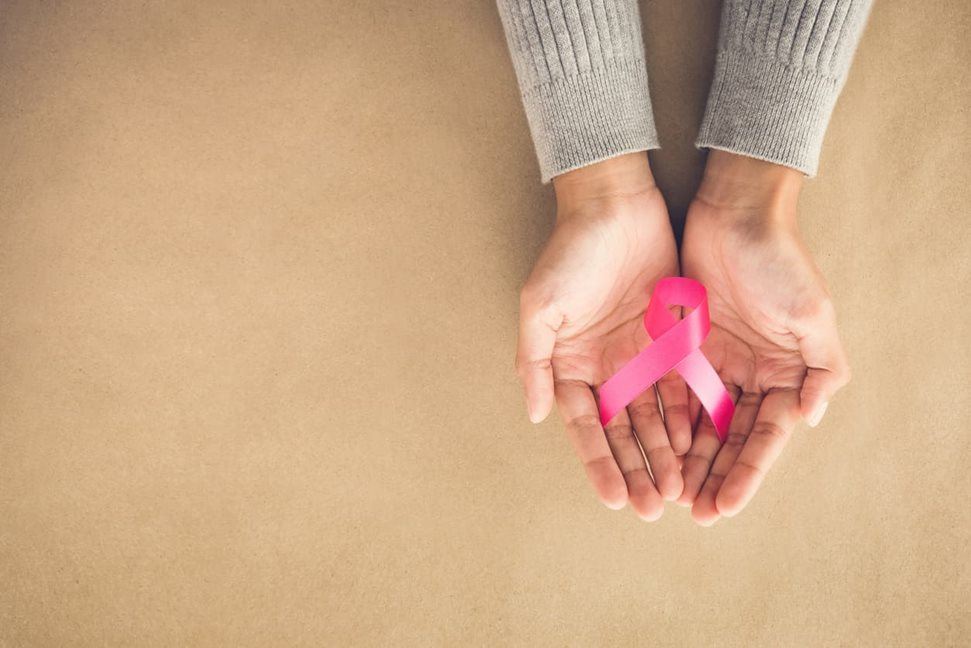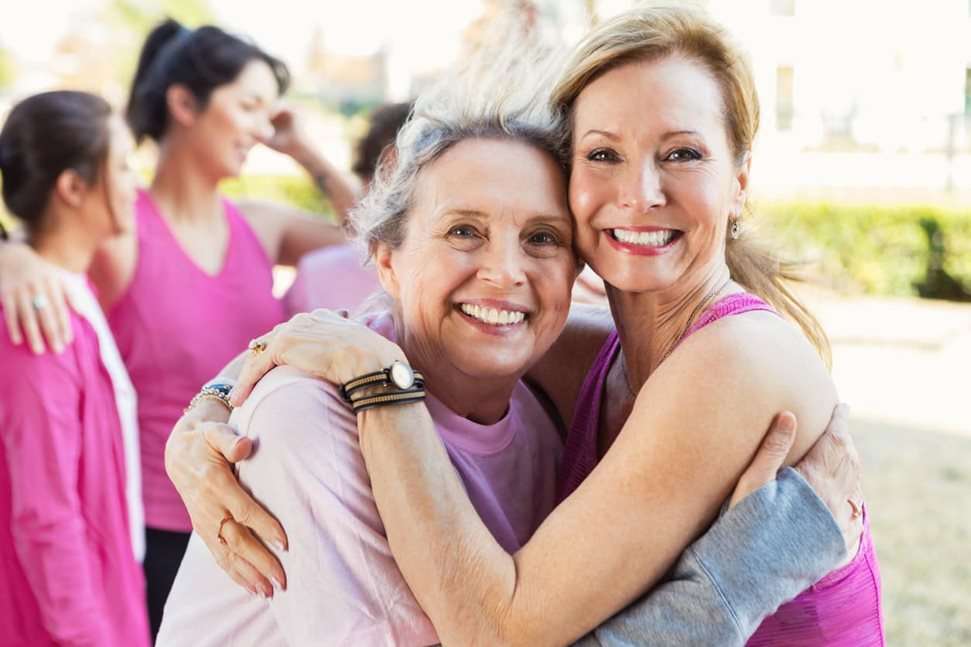Checking for Breast Cancer
Breast cancer is the second most common cancer affecting women in Ireland with over 3,000 women diagnosed each year - that’s eight women each day. Thankfully, the number of survivors is increasing and spotting the signs early can greatly increase your chances of survival. We spoke to Aileen McHale, Cancer Information Services Manager from the Irish Cancer Society to find out more.
Why It’s Important to be Breast Aware

Being breast aware means getting to know how your breasts look and feel so you can know what’s normal for you. “Breast awareness is not just something you should take up at 40 or 50 years of age,” Aileen explains. “It’s something you should take up as a young adult and bring with you through your life. If you do spot a change, then you can explain to your GP with certainty that it’s important to get it checked out.”
What Signs of Breast Cancer Should You Be Checking For?
Most of us are aware that a lump should be checked out. However, there are other watch-outs. “People get fixated on lumps and think they are the only thing to look out for,” Aileen notes. “But it’s important to be aware of the other signs too.” These signs are:
- A change in size or shape such as one breast becoming larger than the other
- A change in the skin such as puckering or dimpling (like orange peel) or redness
- A change in the direction or shape of your nipple, especially if it is pulled in or flattened or becomes irregular in shape
- An unusual discharge (liquid) from one or both of your nipples
- A change on or around the nipple such as a rash or flaky or crusted skin
- Swelling in your armpit or around your collarbone
- A lump or thickening in your breast
- Constant pain in one part of your breast or armpit
If you spot any of these signs, book in with your GP straight away. “Don’t ignore changes,” Aileen notes. “Ring your GP and make that appointment. Taking action is better than sitting at home worrying.” While a change to the breast can cause worry, it’s important to remember that 9 out of 10 times, a change will not turn out to be breast cancer.
Breast Check

Although younger women can get breast cancer, your risk increases with age - 76% of patients are over 50 years old. If you are between the ages of 50-67, you’re entitled to a free screening mammogram through BreastCheck. “It’s every two years and it’s by invitation,” Aileen notes. “If you are a woman aged between 50-67 and have never received a letter, you should contact BreastCheck.”
Cancer Nurseline, Support
“Anyone who is concerned about or affected by Cancer can call the The Irish Cancer Society’s Cancer Nurseline on 1800 200 700, here you can speak in confidence with a cancer nurse. “We get a lot of calls from women concerned about breast cancer,” Aileen explains. “Our cancer nurses can speak to women about any issues or concerns - sometimes it’s nice to just talk it through with somebody in complete confidence.”
How to Reduce Your Risk of Breast Cancer
The Irish Cancer Society offers the following tips for reducing your risk of breast cancer:
Be a healthy weight
Being overweight after the menopause can increase your risk of breast cancer. This is because fat cells in your body increase hormones and high levels of certain hormones in turn increase your cancer risk. Try to be a healthy weight by eating a healthy diet and being active.
Be active
Women who are physically active have a lower risk of breast cancer than less active women. Try to do at least 30 minutes of moderate physical activity on five or more days a week. Moderate physical activity is any movement that makes you feel warm and breathe a little deeper.
Limit alcohol
Drinking alcohol increases your risk of breast cancer. The more you cut down on alcohol, the more you can reduce your risk. Limit your risk by drinking no more than one standard drink a day.
Breastfeed your baby
Breastfeeding helps to protect mothers from breast cancer. It is best to breastfeed your baby for the first six months if possible. The longer a woman breastfeeds her baby, the more she reduces her breast cancer risk.
Don’t smoke
Some recent research suggests that smoking may increase the risk of breast cancer. It is important to note that smoking causes 30 per cent of all cancers. For advice, support and information contact the HSE Quit Team on Freephone 1800 201 203, Freetext QUIT TO 50100
Resources
For confidential advice, support and information, you can speak to a cancer nurse by contacting Cancer Nurseline on 1800 200 700 Monday - Friday 9am - 5pm. Or you can email cancernurseline@irishcancer.ie
Breast screening - BreastCheck
Breast screening helps find cancer at an early stage. Breast screening involves having a mammogram of your breasts at a BreastCheck clinic or mobile screening unit. You become eligible for breast screening once you reach the age of 50.
Freephone information line: 1800 45 45 55 or www.BreastCheck.ie.